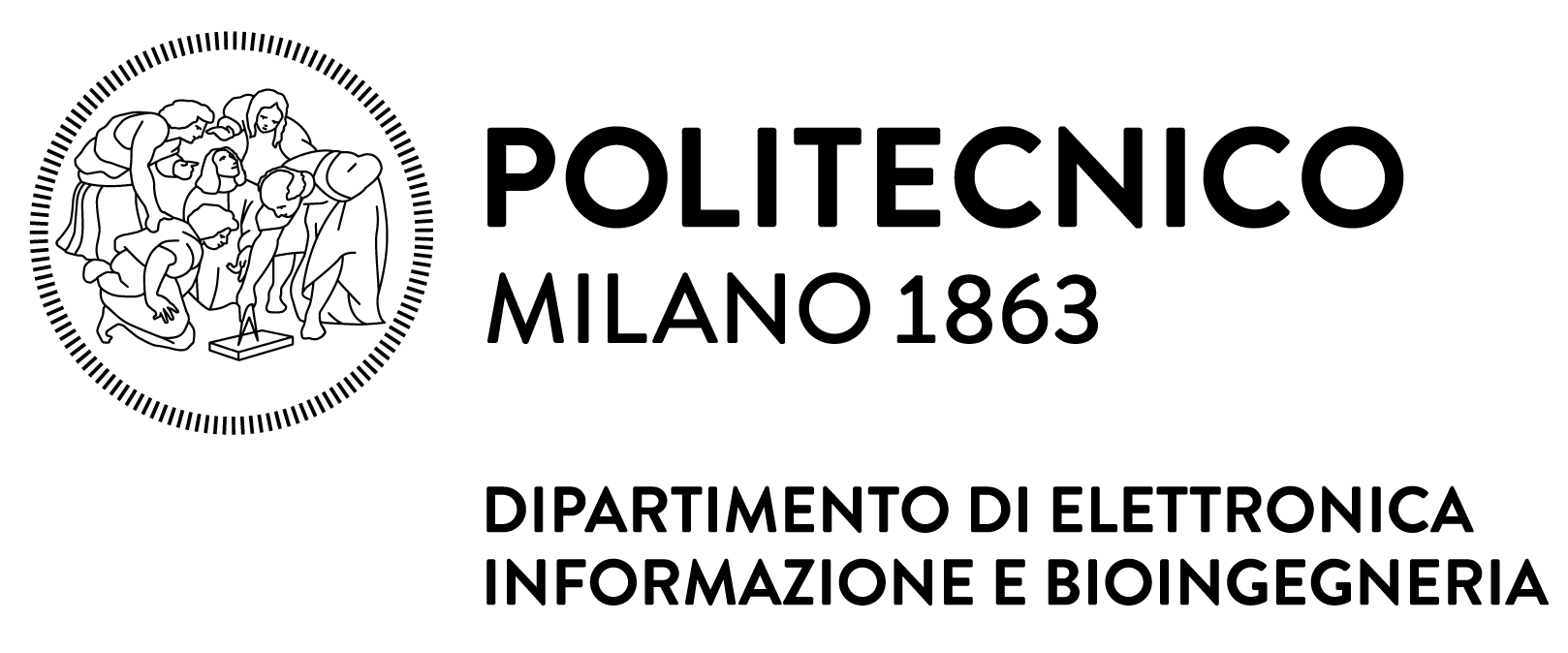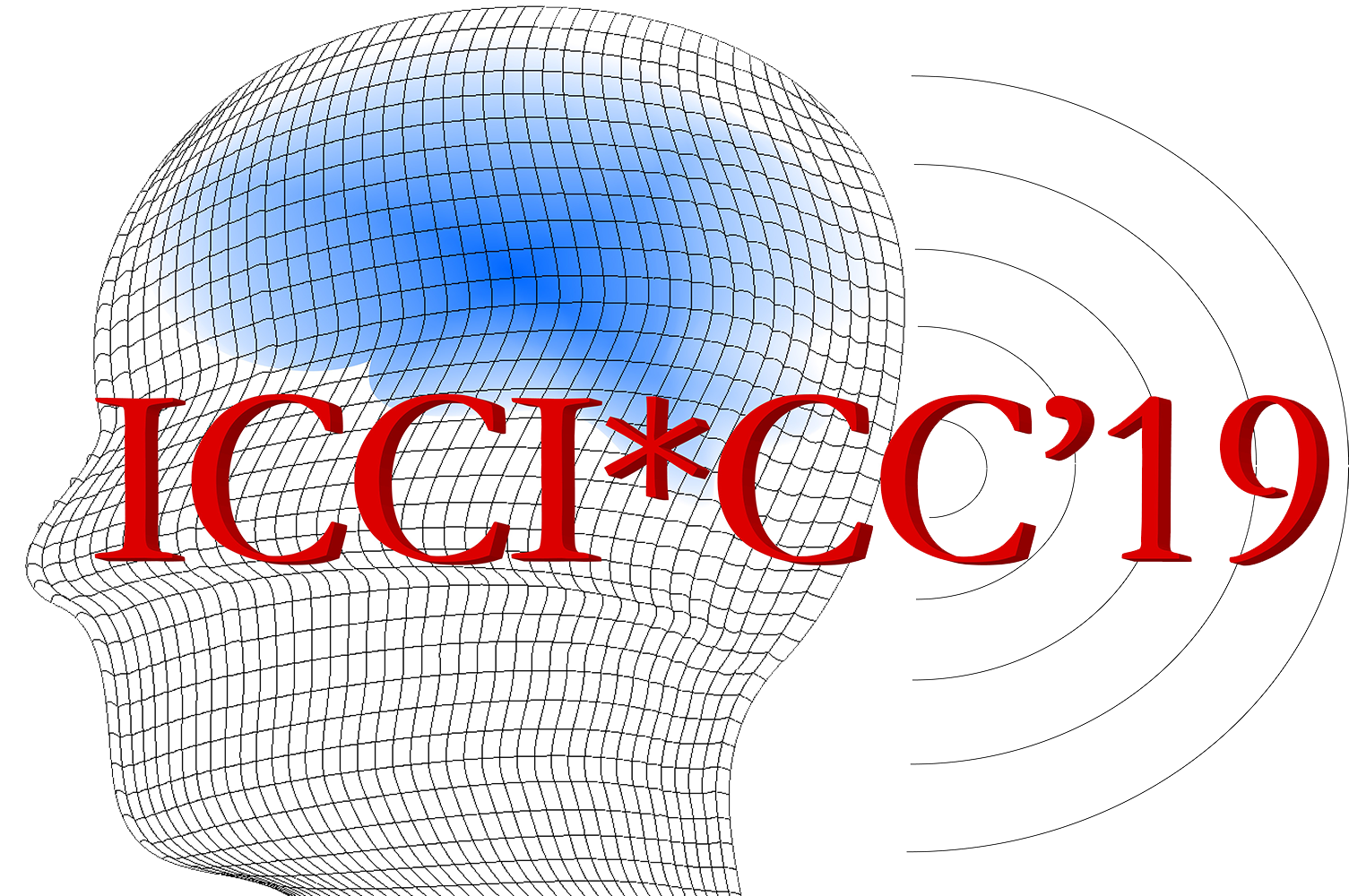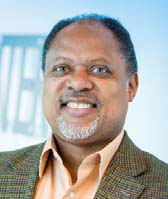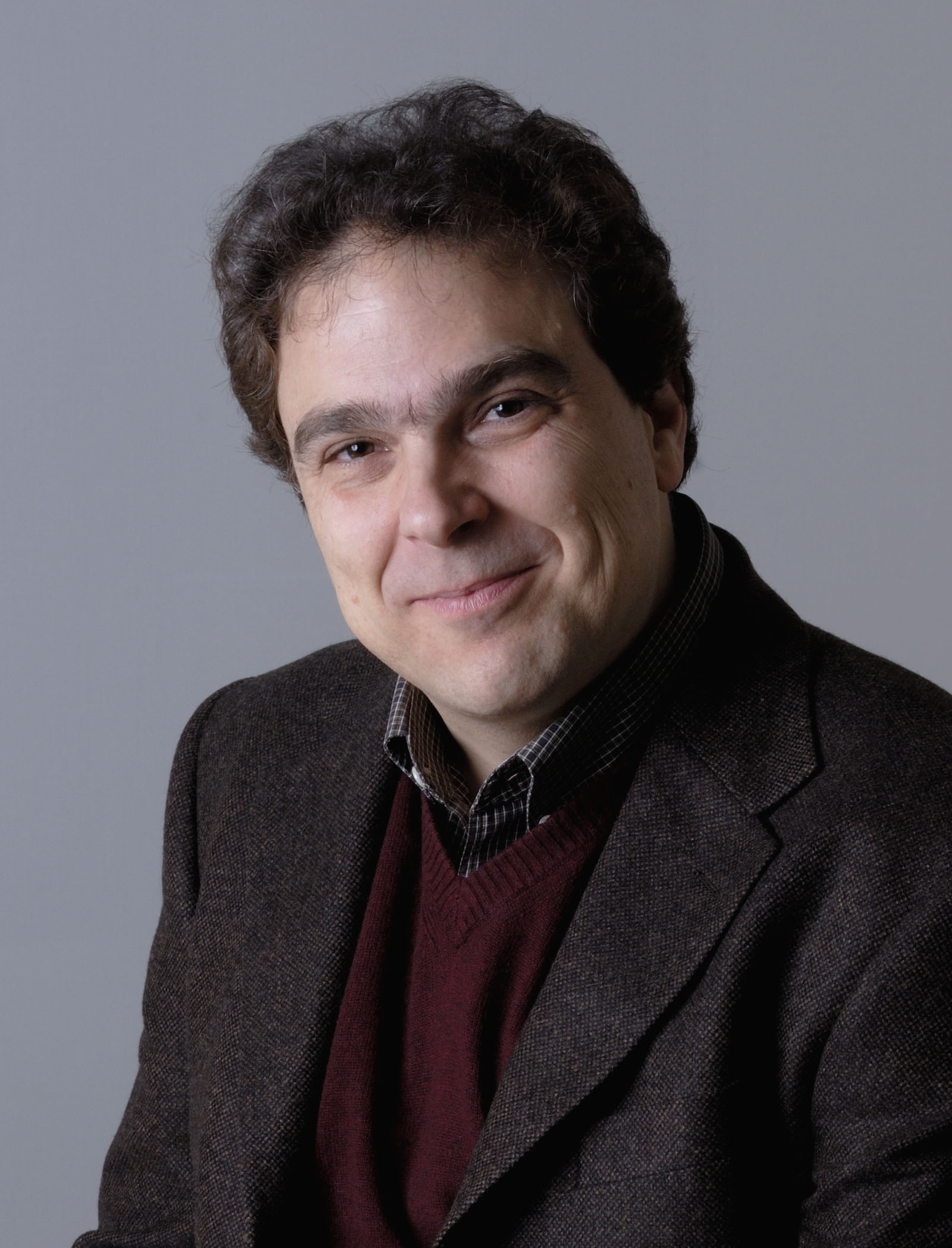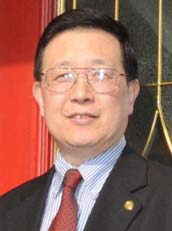|
|
Edward Tunstel, Fellow, IEEE Talk Title: Transdisciplinary Convergence of Human-Centric Robotic Systems and Cybernetics
Associate Director of Robotics Autonomous and Intelligent Systems Department of United Technologies Research Center (UTRC) President, IEEE Systems, Man, and Cybernetics Society (SMCS) |
|
Abstract: Today’s discourse among technical professionals and technology enthusiasts alike is teeming with subject matter focused on innovations resulting from the research and practice of systems science and engineering, human-machine systems, and cybernetics. Whether it is complex systems enabled by cybernetics, intelligence for robotic and vehicular autonomy, new capabilities enabled by advances in machine learning, augmented humans, human-machine fusion, or other forms of human-machine symbiosis, the dialog is vibrant in technical and non-technical sectors of society. The convergence of these focal areas is prevalent at the current cutting edge of technology, but with a more pronounced emphasis on human factors and human relationships to technologies comprising complex systems and toward enabling appropriate human-centric solutions. |
|
|
Short Bio: Edward Tunstel is an IEEE Fellow and 2018–2019 president of the IEEE Systems, Man, and Cybernetics Society. He is an associate director of robotics at the United Technologies Research Center, which he joined in 2017 after working for ten years at the Johns Hopkins Applied Physics Laboratory, where he served as senior roboticist in its research department and Intelligent Systems Center and as space robotics and autonomous control lead in its space department. He was previously with NASA’s Jet Propulsion Laboratory for 18 years, where he was a senior robotics engineer, group leader of its Advanced Robotic Controls Group, and flight systems engineer responsible for autonomous navigation, mobility and robotic arm subsystems for NASA Mars Exploration Rover missions. He maintains expertise in robotics and intelligent systems with current research interests in mobile robot navigation, autonomous control, cooperative robotics, robotic systems engineering, and soft computing applications to autonomous systems. He has authored more than 150 technical publications and co-edited four books in these areas. He received bachelor and master degrees in mechanical engineering from Howard University and the Ph.D. in electrical engineering from University of New Mexico.
|
|
|
|
|
|
|
Newton Howard, Ph.D. TALK Title: The Future of the Brain and Beyond
Download Newton Howard’s Talk in PDF
Computational Neurosciences Lab University of Oxford, UK https://www.nds.ox.ac.uk/team/newton-howard Email: newton.howard@nds.ox.ac.uk
|
|
Abstract: In order to study brain function, some researchers have attempted to reverse-engineer neuronal networks and even the brain itself. This approach was based on the assumption that neurons in-vivo acted just like simple transistors in-silico. Unfortunately, both network and whole-brain modeling based on this premise have led to very little insight into actual brain function. The evidence for this claim is two-fold. First, the amount of energy needed to operate computing machinery that isn’t anywhere near as complex as the human brain still requires much more energy than the latter. Second, because transistor-based computing reacts to static events whilst neurons can react to processes, properties inherent to computing architectures hardware prevent the true level of complexity and connectivity achieved in the human brain from being realized in-silico. In contrast to transistors, neurons can establish and change their connections and vary their signaling properties according to a variety of rules, allowing them to adapt to circumstances, self-assemble, auto-calibrate and store information by changing their properties according to experience (Laughlin & Sejnowski, 2003). In this speech, we elaborate on this evidence, and argue that there is a need to re-think the way we approach brain computation. In particular, we argue for a detailed understanding of neuronal function and network organization is required prior to neuronal network modeling attempt. |
|
|
Short Bio: Prof. Newton Howard is an inventor and scientist. Has over 30 years of experience developing technology and bringing it to life including products now owned by Boeing, Intel, Google and Microsoft with the development of emergent technologies and IP. Dr. Howard has over 200 publications, and has generated over 85 patents in the fields of AI and neuroscience. Dr. Newton Howard is a Professor of Computational Neuroscience and Functional Neurosurgery at the University of Oxford, where he also serves as Director of the Computational Neuroscience Lab. At MIT, Professor Howard was the Director of the Synthetic Intelligence Laboratory and the former founder Director of the MIT Mind Machine Project. Professor Howard is an active member of several research laboratories worldwide. He is also the Founder and Chairman of the Brain Sciences Foundation. Dr. Howard has been involved in a wide range of research, spanning academic, military and commercial domains and has resulted in several significant theories, including Intention Awareness (IA), the Fundamental Code Unit (FCU) and the Brain Code (BC). His work at Oxford has been focused on understanding how the most fundamental processes within the human brain produce thought and consciousness. He seeks to understand the language of the brain, for the purposes of providing advanced methods of detection and treatment for many neurological disorders such as Alzheimer’s Disease (AD), Parkinson’s Disease (PD), Post Traumatic Stress Disorder (PTSD), depression, epilepsy and diabetes. |
|
|
|
|
|
|
Giuseppe de Giacomo, Fellow, AAAI, ACM, and EurAI Talk Title: WhiteMech: White-Box Self-Programming Mechanisms
Download Giuseppe-de-Giacomo’s Talk in PDF
Department of Computer Science and Engineering University of Rome |
|
Abstract: Dynamic systems that operate autonomously in nondeterministic (uncertain) environments are becoming a reality. These include intelligent robots, self-driving cars, but also manufacturing systems (Industry 4.0), smart objects and spaces (IoT), advanced business process management systems (BPM), and many others. These systems are currently being revolutionized by advancements in sensing (vision, language understanding) and actuation components (autonomous mobile manipulators, automated storage and retrieval systems). However, in spite of these advances, their core logic is still mainly based on hard-wired rules either designed or possibly obtained through a learning process. On the other hand, we can envision systems that are able to deliberate by themselves about their course of action when unanticipated circumstances arise, new goals are submitted, new safety conditions are required, and new regulations and conventions are imposed. Crucially, empowering dynamic systems with deliberating capabilities carries significant risks and therefore we must be able to balance such power with trust. For this reason it is of interest to make these systems queryable, analyzable and explainable in human terms, so as to be guarded by human oversight. Recent scientific discoveries in Knowledge Representation and Planning combined with insights from Verification and Synthesis in Formal Methods, Data-Aware Processes in Databases, as well as other areas of AI, chart a novel path for realizing what we may call White-Box Self-Programming Mechanisms, that is, systems with a multifaceted model of the world that can be exploited to deliberate on their course of action and answer queries about their behavior. |
|
|
Short Bio: Giuseppe De Giacomo is full professor in Computer Science and Engineering at Univ. Roma “La Sapienza”. His research activity has concerned theoretical, methodological and practical aspects in different areas of AI and CS, most prominently Knowledge Representation, Reasoning about Actions, Generalized Planning, Autonomous Agents, Service Composition, Business Process Modeling, Data Management and Integration. He is AAAI Fellow, ACM Fellow, and EurAI Fellow. He is Program Chair of ECAI 2020. He is has got an ERC Advanced Grant for the project WhiteMech: White-box Self Programming Mechanisms (2019-2024).
|
|
|
|
|
|
|
Sam Kwong, Fellow, IEEE Talk Title: Machine Learning based Video Coding using Data-driven Techniques and Advanced Models
Download Sam Kwong’s Talk in PDF
Department of Computer Science City University of Hong Kong, Hong Kong |
|
Abstract: In June 6th 2016, Cisco released the white paper [1], VNI Forecast and Methodology 2015-2020, reported that 82 percent of Internet traffic will come from video applications such as video surveillance, content delivery network, so on by 2020. It also reported that Internet video surveillance traffic nearly doubled, Virtual reality traffic quadrupled, TV grew 50 percent and similar increases for other applications in 2015. The annual global traffic will first time exceed the zettabyte (ZB;1000 exabytes[EB]) threshold in 2016, and will reach 2.3 ZB by 2020. It implies that 1.886ZB belongs to video data. Thus, in order to relieve the burden on video storage, streaming and other video services, researchers from the video community have developed a series of video coding standards. Among them, the most up-to-date is the High Efficiency Video Coding (HEVC) or H.265 standard, which has successfully halved the coding bits of its predecessor, H.264/AVC, without significant increase in perceived distortion. With the rapid growth of network transmission capacity, enjoying high definition video applications anytime and anywhere with mobile display terminals will be a desirable feature in the near future. Due to the lack of hardware computing power and limited bandwidth, lower complexity and higher compression efficiency video coding scheme are still desired. For higher video compression performance, the key optimization problems, mainly decision making and resource allocation problem, shall be solved. In this talk, I will present the most recent research results on machine learning and game theory based video coding. This is very different from the traditional approaches in video coding. We hope applying these intelligent techniques to vide coding could allow us to go further and have more choices in trading off between cost and resources. |
|
|
Short Bio: Sam Kwong received the B.Sc. degree from the State University of New York at Buffalo, Buffalo, NY, in 1983, the M.A.Sc. degree in electrical engineering from the University of Waterloo, Waterloo, ON, Canada, in 1985, and the Ph.D. degree from the Fernuniversität Hagen, Hagen, Germany, in 1996. From 1985 to 1987, he was a Diagnostic Engineer with Control Data Canada, where he designed the diagnostic software to detect the manufacture faults of the VLSI chips in the Cyber 430 machine. He later joined the Bell Northern Research Canada as a Member of Scientific Staff, where he worked on both the DMS-100 voice network and the DPN-100 data network project. In 1990, he joined the City University of Hong Kong as a Lecturer in the Department of Electronic Engineering. He is currently an Associate Professor in the Department of Computer Science. He was responsible of the software design of the first handheld GSM mobile phone consultancy project in which it was one of the largest consultancy projects at the City University of Hong Kong in 1996. He coauthored three research books on genetic algorithms, eight book chapters, and over 200 technical papers. He has been a consultant to several companies in telecommunications. Prof. Kwong was awarded the Best Paper Award for his paper entitled “Multiobjective Optimization of Radio-to-Fiber Repeater Placement Using a Jumping Gene Algorithm” at the IEEE International Conference on Industrial Technology (ICIT’05), Hong Kong, in 2005. In addition, he received the Best Paper Award at the 1999 BioInformatics Workshop, Tokyo, for the paper entitled “A Compression Algorithm for DNA Sequences and Its Application in Genome Comparison” in recognition of his outstanding contribution to the conference. Currently, he is the Associate Editor for the IEEE Transactions on Industrial Informatics, the IEEE Transactions on Industrial Electronics, IEEE Transactions on Evolutionary Computation, the Journal of Information Science. Currently, he is the Head and Professor of the department of Computer Science, City University of Hong Kong. Prof. Kwong was elevated to IEEE fellow for his contributions on Optimization Techniques for cybernetics and video coding in 2014.
|
|
|
|
|
|
|
Yingxu Wang, Senior Member, IEEE and ACM; Fellow, BCS, ICIC and WIF Talk Title: On the Emergence of Abstract Sciences and Breakthroughs in Machine Knowledge Learning
Download Yingxu Wang’s Talk in PDF
President, International Institute of Cognitive Informatics and Cognitive Computing (ICIC) Visiting Professor: Stanford Univ. (2008|16), MIT (2012), UC Berkeley (2008), Oxford Univ. (1995) Dept. of Electrical and Computer Engineering, Schulich School of Engineering and Hotchkiss Brain Institute University of Calgary, Canada 2500 University Drive, NW, Calgary, Alberta, Canada T2N 1N4 |
|
Abstract: Recent basic studies have revealed an unprecedented phenomenon of the emergence of Abstract Sciences (AS) [Wang & Tunstel, 2019] as a counterpart of classic concrete sciences. AS encompasses contemporary disciplines of data, information, knowledge, intelligence, mathematics, and system sciences. AS leads to novel theories and technologies for AI in general, and Machine Knowledge Learning (MKL) in particular [Wang, 2016]. The latestdiscovery in AS reveals that the basic unit of knowledge is a binary relation (bir) [Wang, 2017] as that of bit for information and data. MKL powered by the breakthroughs in Cognitive Knowledge Bases (CKB) and denotational mathematics will enhance human learning capability. MKL leads to advanced form of machine learning, which enables cognitive machines as an indispensable assistant to humans with mutually sharable knowledge bases towards collective knowledge learning. A wide range of novel applications in AI and cognitive systems will be presented. |
|
|
Keywords: Cognitive informatics, abstract sciences, cognitive systems, machine knowledge learning, denotational mathematics, cognitive computing, semantic computing, cognitive knowledge base, applications |
|
|
Short Bio: Yingxu Wang is professor of cognitive informatics, brain science, software science, and denotational mathematics. He is President of International Institute of Cognitive Informatics and Cognitive Computing (http://www.ucalgary.ca/icic/). He is Fellow of BCS, ICIC and WIF, P.Eng, and Senior Members of IEEE and ACM. He has held visiting professor positions at Oxford University (1995), Stanford University (2008 | 2016), UC Berkeley (2008), and MIT (2012), respectively. He is a member of the Academic Committee of the Beijing State Research Center for Information Science and Technology at Tsinghua Univ. He received a PhD in Computer Science from the Nottingham Trent University, UK, in 1998 and has been a full professor since 1994. He is the founder and steering committee chair of the annual IEEE International Conference on Cognitive Informatics and Cognitive Computing (ICCI*CC) since 2002. He is founding Editor-in-Chiefs of Int’l Journal of Cognitive Informatics & Natural Intelligence, of Software Science & Computational Intelligence, and of Mathematical & Computational Methods. He is Associate Editor of IEEE Trans. on Cognitive and Development Systems (TCDS) and IEEE Computer Society Representative to the steering committee of TCDS. Chair of IEEE SMCS TC-BCS on Brain-inspired Cognitive Systems. Dr. Wang is recognized by Google search as the initiator of a few cutting-edge research fields including those of cognitive informatics, denotational mathematics (i.e., concept algebra, process algebra, system algebra, semantic algebra, big data algebra, and visual semantic algebra), abstract intelligence (aI), the 3rd generation of information theory in the kowledge space, the spike frequency modulation (SFM) theory, mathematical modeling of the brain, cognitive computing systems, cognitive learning engines, and the cognitive knowledge base theory. His basic studies have acrossed contemporary disciplines of sciences including intelligence, robotics, knowledge, computer, information, brain, cognition, software, data, neurology, linguistics, and system sciences. He has created and proven 100+ theorems in the aforementioned fileds. He has published 500+ peer reviewed papers and 36 books. He has presented 48 invited keynote speeches in international conferences. He has served as honorary, general, and program chairs for 32+ international conferences. He has led 10+ international, European, and Canadian research projects as PI by intensive collaborations with renowned peers and leading industrial partners. He is a top 2.5% scholar worldwide according to Research Gate’s international big-data benchmarks.
|
|
|
|
|
|
|
Rodolfo A. Fiorini, Fellow, WAAS Talk Title: Arbitrary Multiscale Explainable Decision-Making for Symbiotic Autonomous System
Download Rodolfo A. Fiorini’s Talk in PDF
Department of Electronics, Information & Bioengineering Politecnico di Milano University |
|
Abstract: In the near future to solve complex, arbitrary multiscale system problems, we need a unified, integrated framework that can offer an effective and convenient, universal mathematical approach, by considering information not only on the statistical manifold of model states, but also on the combinatorical manifold of low-level discrete, directed energy generators and empirical measures of noise sources, related to experimental high-level overall perturbation. To overcome past modeling limitations in dynamic cooperative multi-agent system, we propose the modeling of agent as purposive subject modeled by advanced decision logic approach. In this context, predicative competence and natural language processing can play a fundamental role in developing new generation of user-friendly, more autonomous, but still colloquial systems to offer explainable decision-making to achieved goal. Understanding this deep layer of “machine thought” is vital to develop highly competitive, more reliable and effective symbiotic autonomous systems. A new approach to computational predicative competence will be presented. |
|
|
Keywords: Collective/personal intelligence, evolutive cognition, evolutive information, evolutive wisdom, transdisciplinarity, ontologic database, cognitive framework, cognitive informatics, abstract sciences, cognitive systems, machine knowledge learning, denotational mathematics, cognitive computing, semantic computing, cognitive knowledge base, applications. |
|
|
Short Bio: Rodolfo A. Fiorini is Professor of Bioengineering at Politecnico di Milano University, Italy. He had joined research projects with Stanford University and University of California at Los Angeles. He has received prestigious awards and honors from Italian National Research Council, University and Research Ministry, U.S.A DOL, etc. He is the founder and coordinator of the Research Group on Computational Information Conservation Theory (CICT). His research activity has concerned collective/personal intelligence, evolutive cognition, evolutive information, knowledge representation, modeling and simulation, bio-inspired system, intelligent networking, cognitive computing, human-machine interfaces, computational reasoning, business process management systems, energy management systems, wellbeing, and the use of intercultural transdisciplinary approaches for the creation of reality levels where engineering and life sciences can synergistically interact to promote scientific discovery. Prof. R. A. Fiorini is WAAS Fellow, IEEE, EMB, AAAS, and JtiBS Editorial Board Member.
|
|
|
|
|

